An anti-reflective coating (a.k.a AR, anti-glare or non-glare coating) is a widely used addition in most modern glasses since it improves its optical properties. However, because it is a very thin layer applied to the lens’s front and back surface, it can get easily scratched, which can degrade its optical properties. Since there is no way to repair the AR coating, you can either replace your lenses (which can be pricey) or try to remove the damaged anti-reflective coating.
Since you’re reading this article, chances are you want the latter option.
There are two primary ways to remove the anti-reflective coating:
- For plastic (CR-39) or polycarbonate lenses, use an etching cream.
- For lenses made of glass, use a solution of isopropanol and saltwater to soften the coating, and then remove it with a plastic scraper.
Keep reading for step by step tutorials.
Most modern glasses have plastic lenses, and only a minority uses an actual glass.
Disclaimer: Since different eyeglass manufacturers can use different types of anti-reflective coating, it is possible that you may not be able to remove the anti-reflective layer. If you proceed to do anything you read in this article, you do it at your own risk. I’m just a person who had the same problem as many others trying to help with information about possible solutions.
How to Tell if Lenses are Plastic or Glass?
If you want to be sure if your lenses are made of glass or plastic, the safest bet is to ask the optician from whom you bought the glasses.
In case you can’t ask an optician, there are several easy ways to differentiate glass from plastic lenses.
1. Sound
Lightly tap the lens against your teeth or your ring. If the lens emits a high, ringing tone, it is a glass. In contrast, the plastic will have a low “thud” like sound when tapped.

2. Weight
Glass is much heavier. Generally, glasses with plastic lenses will feel more balanced in hand, while those with glass lenses will be more front heavy.
3. Temperature
The glass feels colder to the touch, while plastic feels warmer since it is a better insulator.
How to Tell if Glasses are Anti-Glare
Nowadays, there are many types of coatings that can be applied to lenses to improve their optical properties. Coatings such as UV-coating, scratch-resistant coating, and anti-fog coating are just a few of many options you can choose from.
In case you are not sure if your glasses have an anti-reflective layer, just hold them to reflect light. If the glare on the lens contains shades of green, turquoise, pink, purple, magenta, blue, or gold, they have an anti-reflective coating. On the other hand, uncoated lenses reflect the same color of light as the light source.
Remove an Anti-Reflective Coating from Plastic Lenses
The best way of removing the anti-reflective layer from glasses with plastic lenses is with the help of etching cream. Here is a list of things you’ll need:
- etching cream (such as Armour Etch, Etchall, and Silhouette, etc.)
- cotton buds or small brush
- rubber gloves
- protective glasses
- microfiber cloth
You can purchase an etching cream at most craft or home improvement stores, or you can buy it from Amazon.
When working with etching cream, always use protective gloves and glasses, and follow the instructions for use on the product label. For more information click here.
Here is the step by step process of removing the anti-reflective coating from plastic lenses:
- With a cotton swab, scoop a little bit of etching cream. Carefully apply it to the whole surface of the lens (both front and back).
- If you get etching cream on the frame of your glasses, wipe it off with the clean side of the q-tip (to prevent any damage to the frame).
- Let it sit for 5 minutes.
- With another cotton swab, do a little scrubbing around the surface of the lens (both front and back).
- Wash thoroughly with soap and water.
Repeat the whole process if there is any AR coating left.
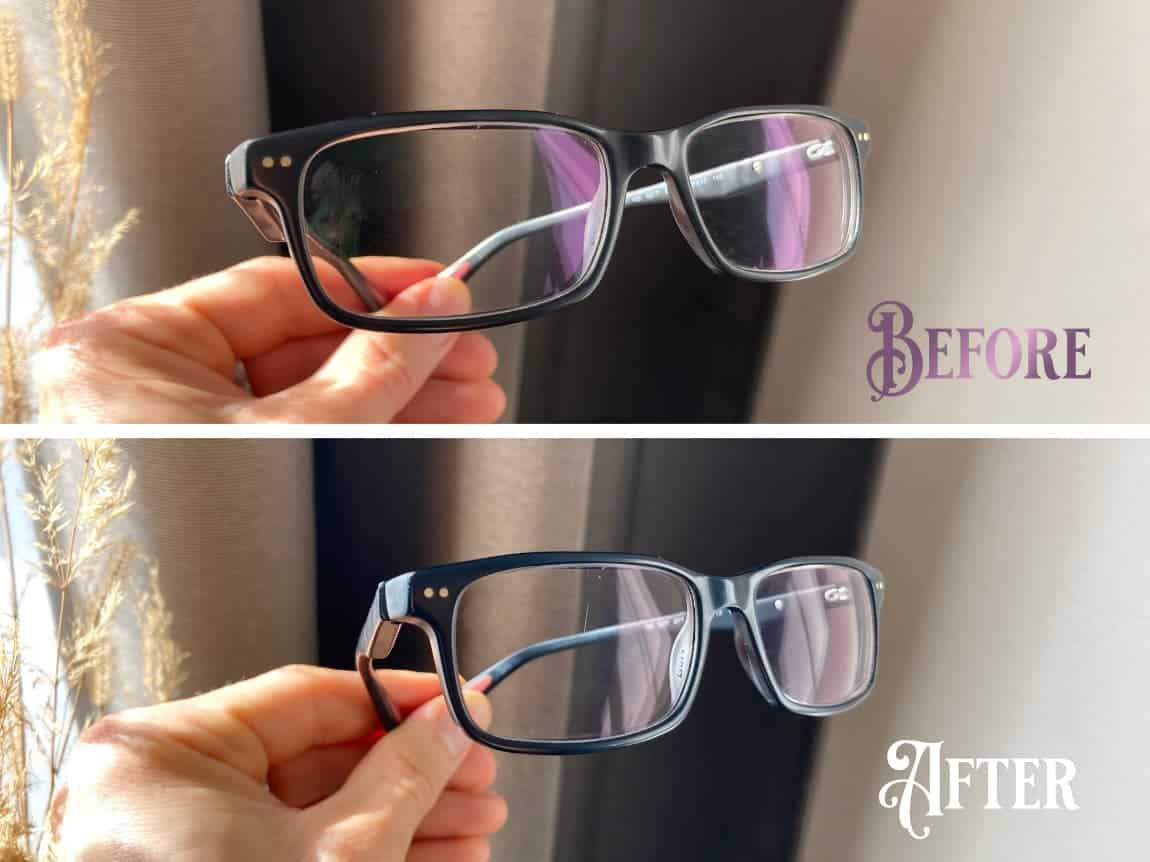
Remove an Anti-Reflective Coating from Glass Lenses
WARNING!
Never use etching cream on glass lenses as it will cause frosting to your glasses, which will make them unusable.
- isopropyl alcohol (preferably 99%) – Amazon link
- plastic scraper of some kind
- saltwater (inn 3,5 ounces (100 ml) of water, dissolve one tablespoon (20 grams) of salt)
- water
- plate or bowl
Here is the step by step process to remove the anti-reflective coating from glass lenses:
- Mix 5 parts of isopropyl alcohol with one part of saltwater.
- Place your glasses onto a plate and pour out the prepared solution just enough so the lenses are entirely submerged.
- Let it sit in the solution for an hour to soften the anti-reflective coating.
- Scrape off the anti-reflective coating using a plastic scraper, and you are done.
Not Happy with the Result?
Different manufacturers use different technologies, and it is possible that you may not be able to remove the anti-reflective layer. Keep in mind that your glass lenses can be damaged in a different way. The methods described above are intended to help remove the scratched and peeling anti-reflective layer of the lenses. If the surface of the lens itself is scratched, the scratches will remain visible even after the procedure. In this case, you will most likely need to at least replace the lenses or buy a new pair of glasses.
The good news is that nowadays you can buy a new glasses without breaking a bank. We found many positive reviews for the Zennioptical (we are not affiliated or payed to promote this brand) eyewear on the internet, where you can purchase basic prescription glasses for as little as $ 6.95, which is a total bargain. Whatever your solution will be, we hope this article has helped you!

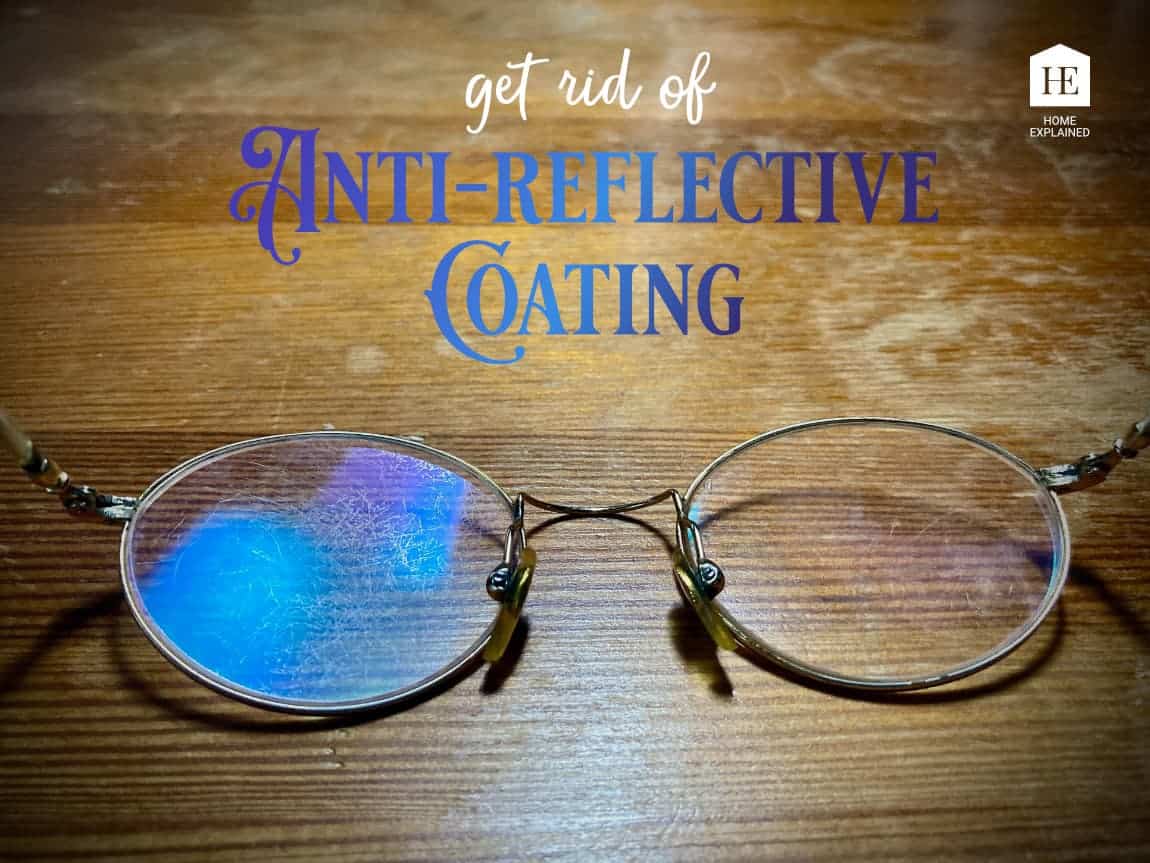

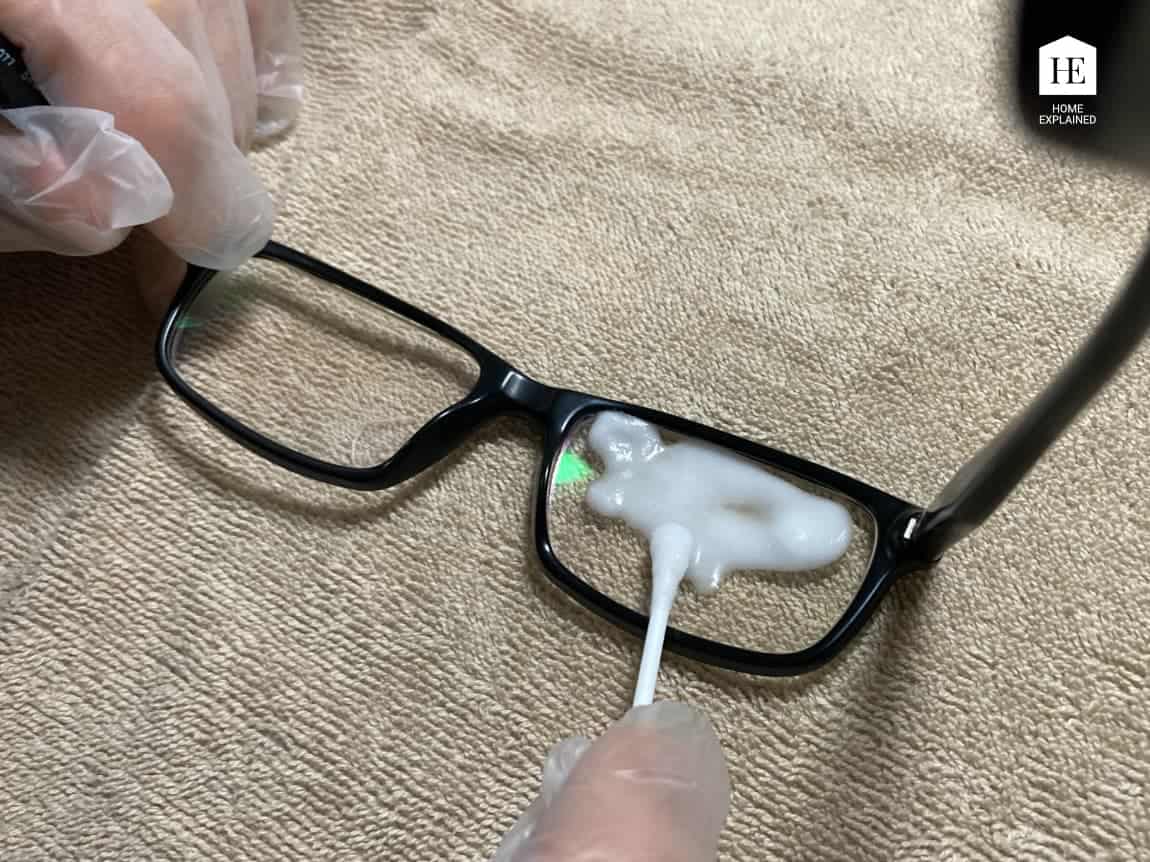
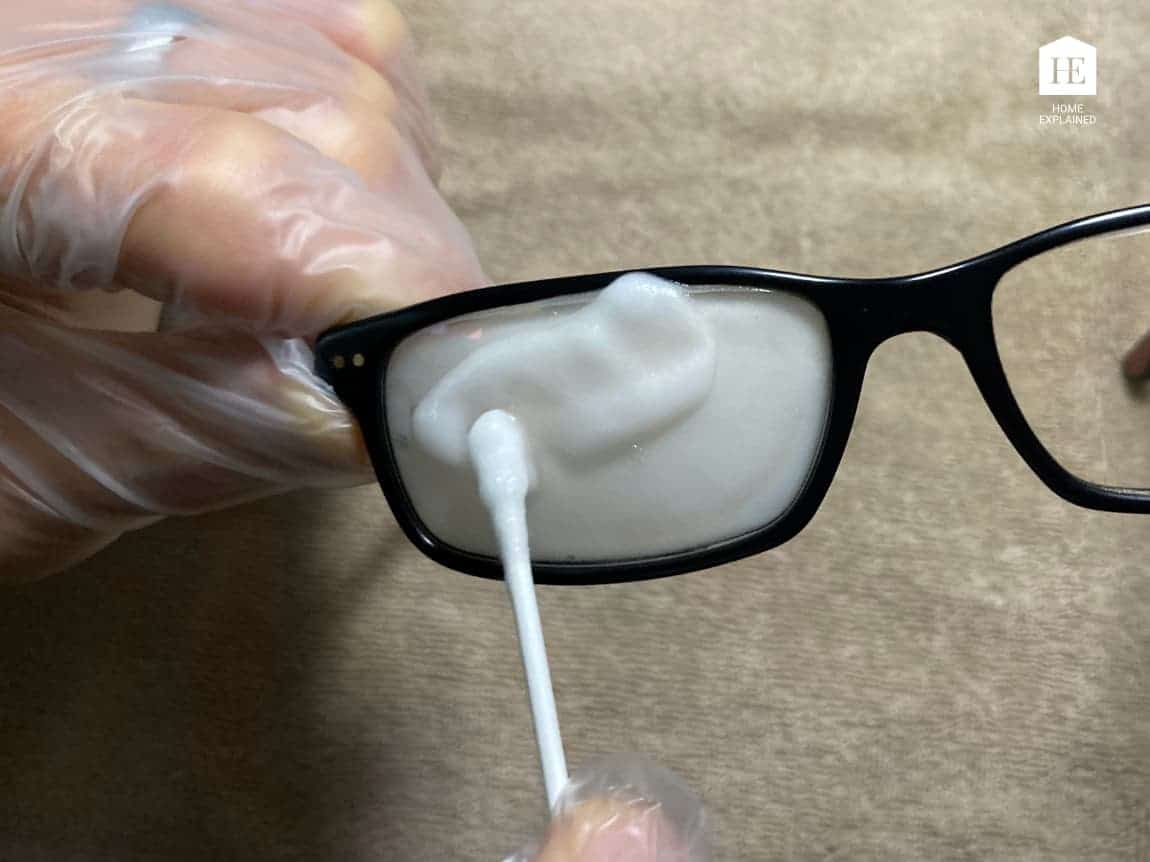
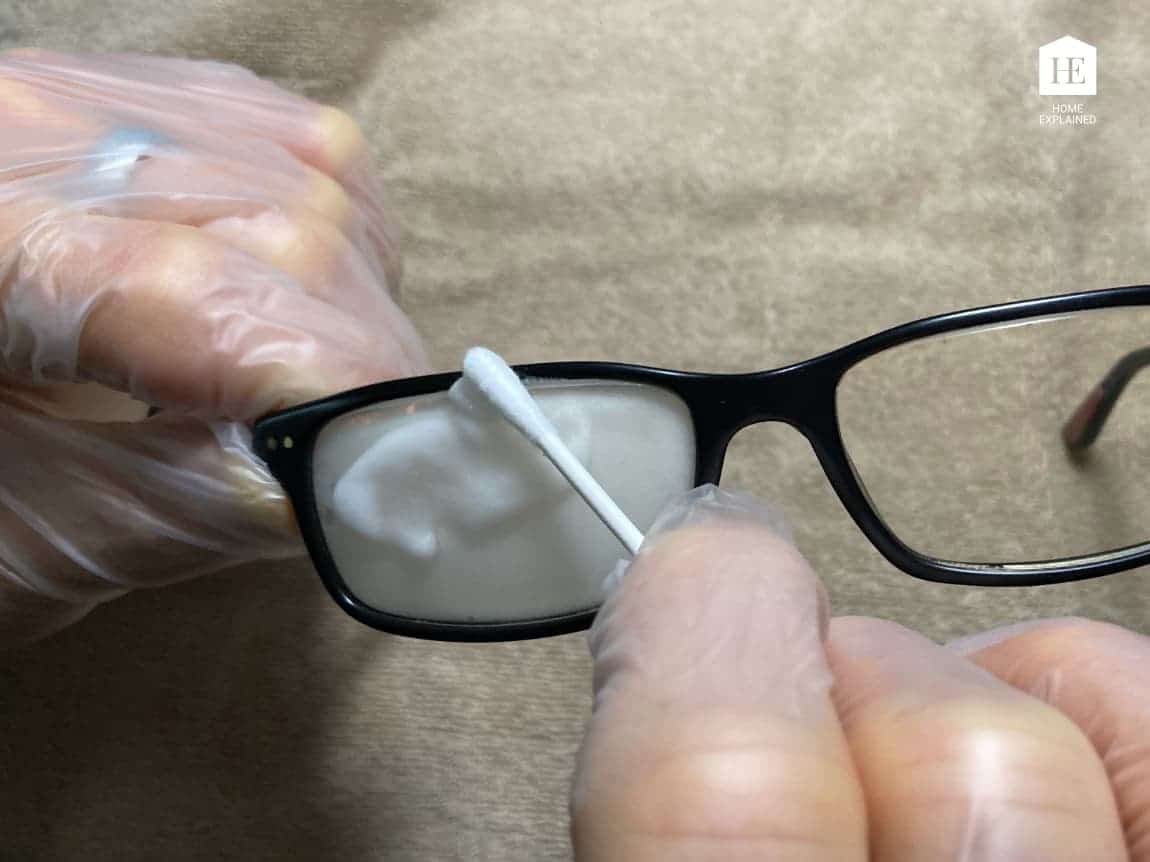
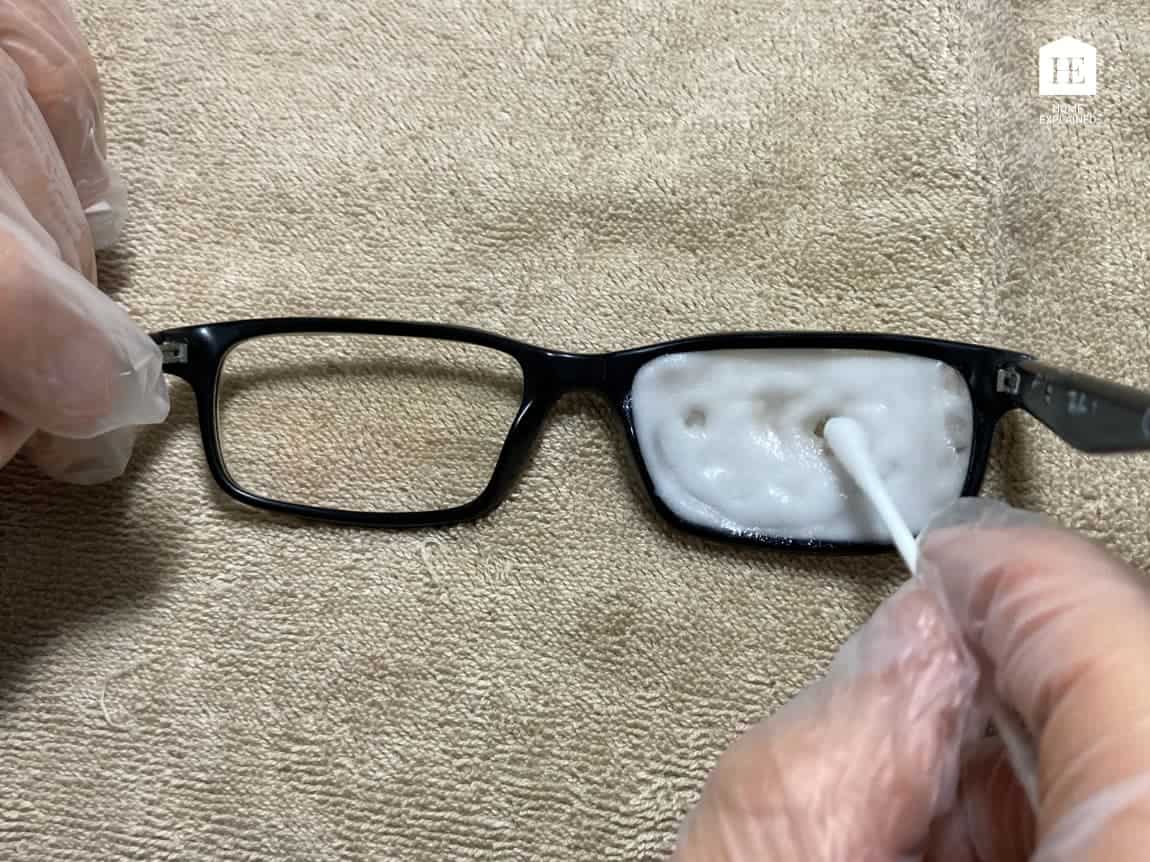

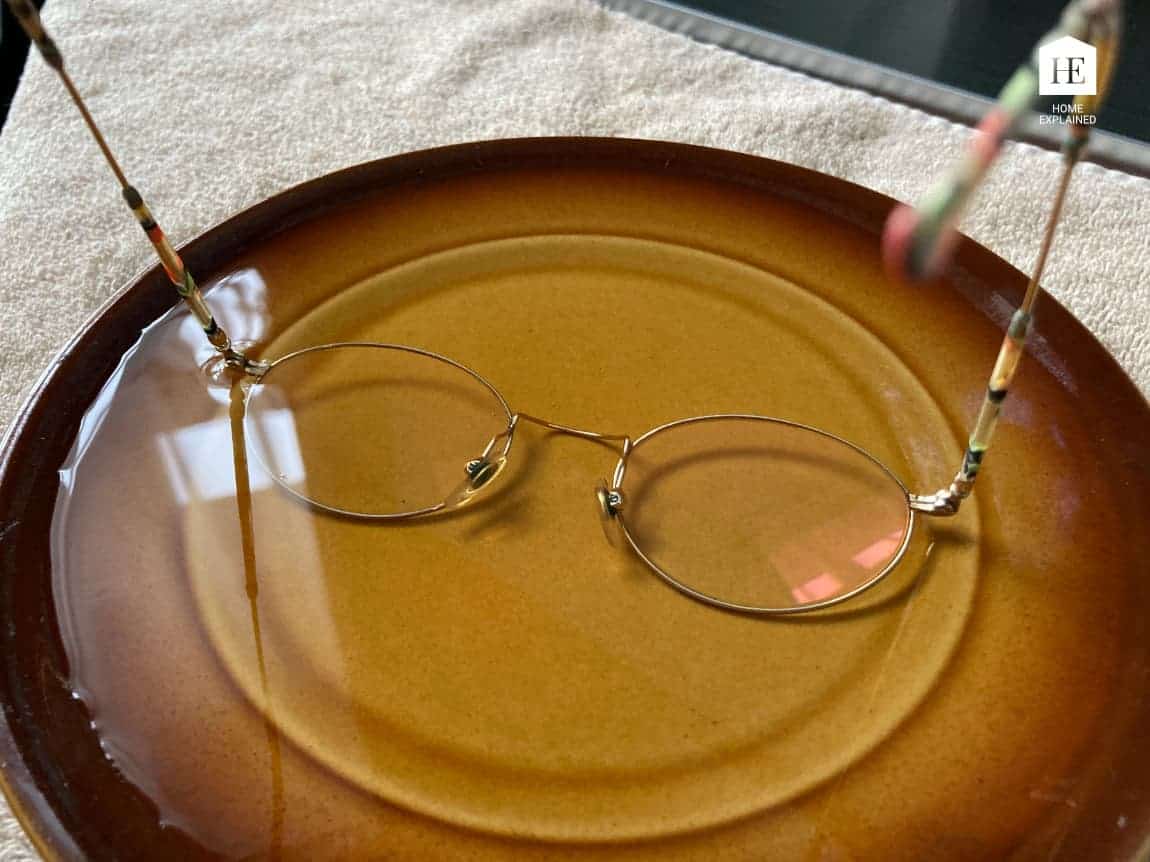
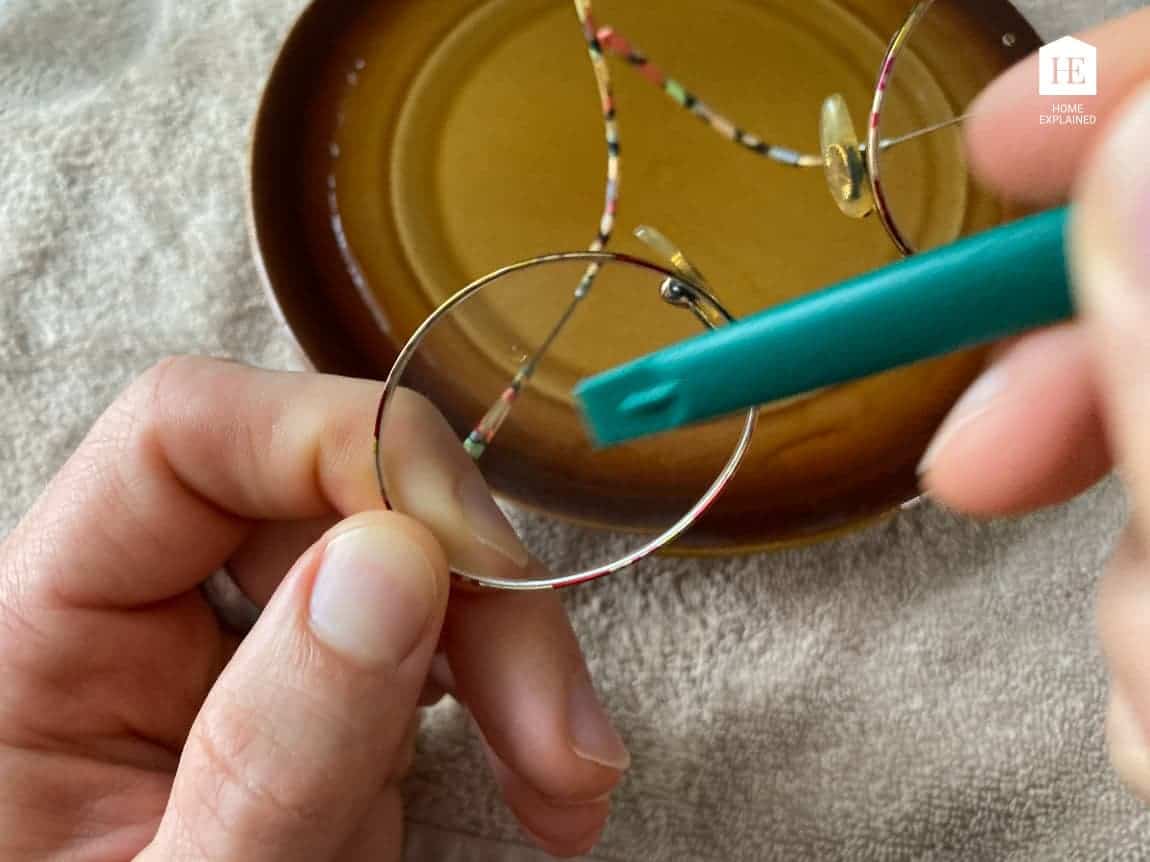

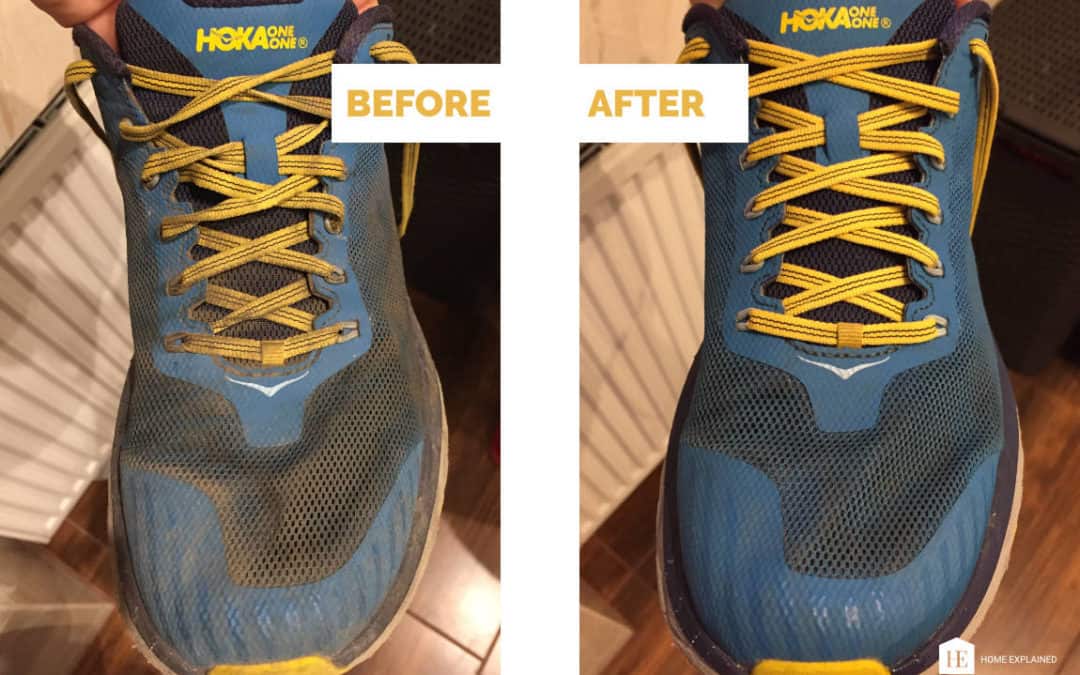

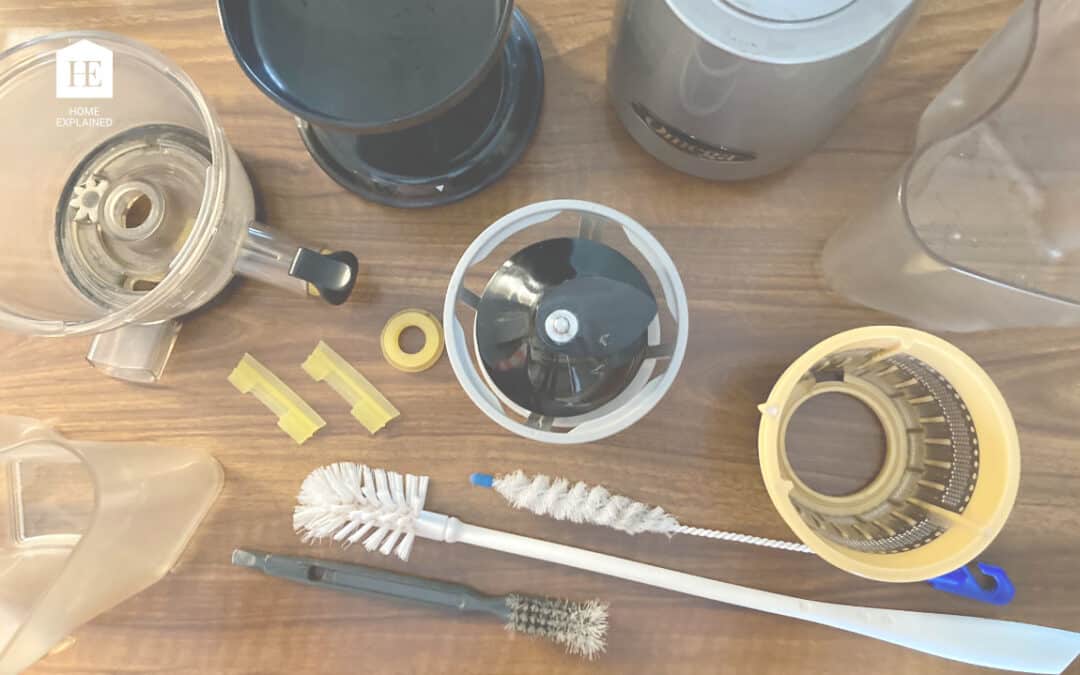
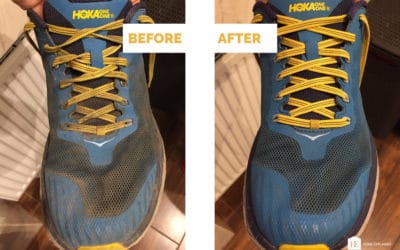

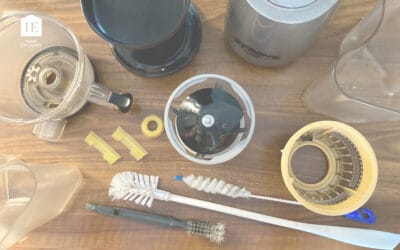
STOP, just Stop please! The coatings are going to be dependent on the substrate. Many of these are proprietary formulas. Zenni optical is NOT a solution for all eyeglass wearers. QUIT spreading this horrible misinformation!
Hi,
Thank you for the feedback. We don’t claim that it is the ultimate solution to the problem. We are providing information about possible solutions, and we also mention in the article that it may not work for every case. But to make it clearer, we added a disclaimer at the beginning of the article as well.
Also, we are not affiliated (in any way) with Zenni Optical. Still, we wanted to provide information about a budget-friendly option for people who can not afford expensive alternatives.
If you have any tips on how to deal with this issue in effective and affordable way, we would love to hear it!
Thanks,
Have a great day!
Hi,
I worked for Zenni, an American company that has disrupted the Luxottica monopoly. I was also a Zenni customer before I worked there.
Some fun facts for you.
– Luxottica has a total monopoly on the optical industry. I literally mean they have a total monopoly. I don’t care where you buy your glasses or what brand they are, you are buying glasses from Luxottica. If you don’t believe me, go look it up.
– Luxottica uses their total monopoly to create a 3000% markup. You are paying 3000% more for your glasses than what they cost to make. If you don’t believe me, go look it up.
– With very few exceptions, ALL GLASSES are made in the same region of China. There are only about 2-3 labs left in the United States. They only major player I can think of that has their own lab outside of China is Kaiser. So as you might expect from my previous points about Luxottica and the monopoly and the 3000% markup, your designer glasses are made in China too. I don’t care if you paid $700 for them, they were made on an assembly line in China. If you don’t believe me, look it up.
– Zenni started with a mission to ensure sight to EVERYONE. Tibor Laczay was committed to ending blindness and creating affordable eyeware so all people could have the gift of vision. Believe it or not but there are millions of people in the USA who can not afford to get glasses or replace their broken glasses. Zenni makes this unattainable goal attainable.
– Tibor Laczay and Julia Zhen built their own lab in China from the ground up. Doing so they can control every step of the process. This ensures high quality glasses at affordable prices. They employ over 900 people in China and you can feel good to know that those employees are paid fair wages in work in a modern environment and treated respectfully.
– If you want to pay more for your Luxottica glasses go for it. They will be made at the lab across the street from the Zenni lab and they will cost about $1-2 dollars to make. They will be sold to you for hundreds more.
– Finally who can’t get glasses at Zenni? In the entire time I worked there I encountered maybe three prescriptions that could not be filled zenni. That is out of millions of prescriptions. 99.999999999999999% of all people can get their glasses from Zenni. The only exceptions are people who might have a prescription that is -13 in one eye and +6 in the other eye. Like two people in American have a prescription like that. Very few labs will fill a prescription like that, not just Zenni. However the Zenni lab will go out of their way to fill all prescriptions and will take special steps to make a pair of glasses work for a customer. I know. I helped with that process. Literally 99.999999999% of prescriptions can be filled by Zenni. That includes my -13.5 rx. I don’t care what your astigmatism is, if you need progressives, if you prefer chromatics, or what lens material outside of glass, you can get your glasses filled by zenni and they will be custom made and accurate. Zenni has a guarantee and will repair or offer store credit should there be a manufacturing defect – which is also exceptionally rare.
Please, stop disparaging a company that has done more to democratize access to high quality glasses than any other company on earth. I suspect you own an optical store and I suggest that you start studying for a new career because Zenni isn’t going away and that is a good thing. I have empathy for you, but times have changed. The internet exists and creative people are revolutionizing industries every day.
–
Thank you for taking the time to respond with such a detailed and insightful comment.
I’ve used this method of removing AR coating to get extra life from old glasses with great success. Also, to the hater of Zenni Optical, I have been ordering from them for more 15 years without issues. They provide a quality base level product that, by nature of your eye prescription or damage to the lenses, needs to be replaced in 1-3 years anyway. Instead of spending $500+ at the eye doctor for glasses (big money maker for them), you can get a quality set of glasses for between $30 (base) – $125 (hi-index progressive bifocal). Companies like Zenni and Warby Parker saw the fat in the margins the specialty eyewear and doctors office glasses had and went after market share. The lenses are prepared by the same machines and the frames are acetate, plastic, and metal, just like the others. In my opinion, if on a budget, like most people, it makes little sense to spend over $200 on a pair of glasses, Completely unnecessary and wasteful.
Thanks for the comment! We agree with you. With this article, we simply wanted to provide helpful information about other possible solutions when dealing with this annoying issue.
I used the instructions to remove AR from plastic lens.
It worked like magic!
I did not have to scrape anything – just apply for 5 minutes and rinse.
Thanks a lot.
Hi Ohad! I’m glad it worked for you! Have a nice day :).
Guys, This is quality useful information, but lets take it to the next level:
How do I apply my own Anti-Reflective “baked-on” coating as opposed to Spray-on coating onto Polycarbonate clear lenses or onto polarized mirror finish polycarbonate lenses.
Hey Martin, good call! I would love to know that as well, but I’m afraid there is no simple solution. If you have any idea let me know!
I used Armour Etch to remove the coatings from my glasses, the process was simple and quick. However once the film was removed minute variations (bobbles) could be seen on the surface (apparently these are as a result of recent manufacturing processes which the coatings cover). I resolved this by using Sensodyne toothpaste as a rubbing compound, an electric toothbrush speeds up the process but a cotton wool ball can be used successfully. BEWARE NOT ALL TOOTHPASTES ARE FINE ENOUGH FOR THIS PURPOSE.
Hi Harry, thank you for the helpful tip!
The etching cream worked perfectly. You have saved me $600. Thank you!
Hi Sadie! I’m glad to hear it :)! Have a nice day.
Hey there! I am trying the method with Armour Etch to remove the AR coating from plastic lenses. I am having some amount of success, with about four applications so far. At first it looked even more scratchy! I suppose only partially removing the AR coating will make it look worse before it gets better, right?
During the last application, I rubbed a bit more with the microfiber cloth, which seemed to remove a bit more of the coating.
Perhaps I misunderstood, but is it okay to use the plastic scraper on plastic lenses? Or is the scraper only for glass lenses?
I appreciate any more suggestions! Thank you.
Hi, RDub. No, you should only use the plastic scraper for the glass lenses. With plastic lenses let the etching cream do the work. The most important step is to correctly identify your type of glasses, using etching cream on a glass lenses will permanently damage them.
I’m honestly so thankful to have a warranty on my lenses! It is up in a couple months so I need to have them redo my lenses and I hope to be more careful with what I clean my lenses with. If next year my anti-glare coating is as scratched off as it is, then I know what to try! Thank you so very much.
I had some cheap new glasses with plastic lenses from Specsavers UK and the coating started degrading on one lens after just a few months. It wasn’t scratched at all but was separating from the lens and making lots of reticulation type patterns. I tried this method using ArmourEtch and it has solved the problem. I had to work quite a lot at it, it wasn’t as quick as the article describes and I had to work the lenses with cotton buds and ArmourEtch a few times (including rinse) and then finally do the little bits that I’d missed, mostly at the edges of the outer surface. But it worked! I can see again with perfect clarity.
Thanks for the comment, I’m glad it worked, even though I took a bit of elbow grease :).
Brilliant. My AR coating started scratching within weeks and there were times I could hardly see out of my lenses. I didn’t even leave it on for 5 minutes. First coat I left on for one, used soap and water, then spot treated the remaining bits around the edges for just a few seconds. Boom! I can see through them again!
I used Sensodine toothpaste and warm water and I got rid of the coating on my glasses, thanks for this info.
Hi Ginette, thanks for the insightful tip. I’m glad you found a way to deal with this issue.
I want to say thank you! I have an old pair of progressive lens glasses I wanted to use as a spare when my current pair broke, but they were so cloudy they were pretty much unusable. After dabbing Armor Etch on the insides of the lenses, leaving for 5 minutes, and a rinse and wash with soap and water, they’re clear again. For the small cost of a bottle of etch cream I have a usable pair of spare glasses.
Thanks again!
Hi Camille! I’m very glad it worked for you :).